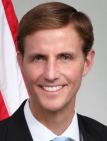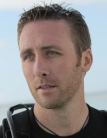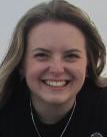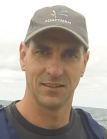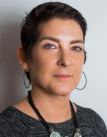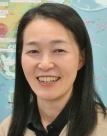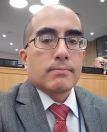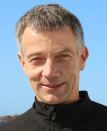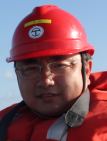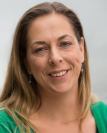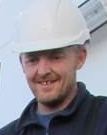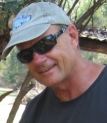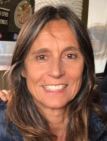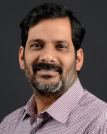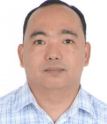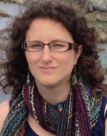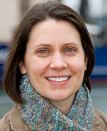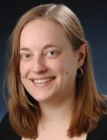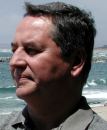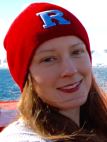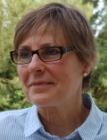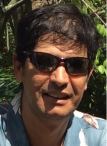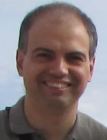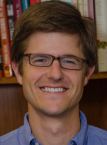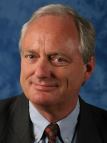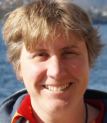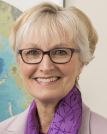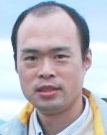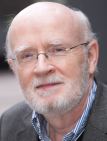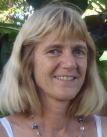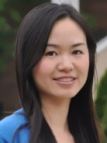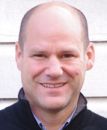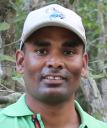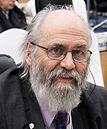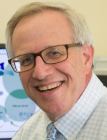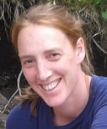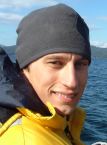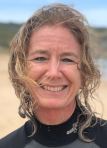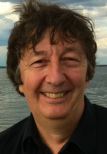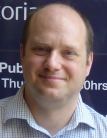
Keynote, Plenary and Invited Speakers
RDML Timothy Gallaudet Assistant Secretary of Commerce for Oceans and Atmosphere and Acting Under Secretary of Commerce for Oceans and Atmosphere, USA
Timothy Gallaudet, Ph.D., was confirmed by the U.S. Senate in October 2017 as the Assistant Secretary of Commerce for Oceans and Atmosphere for the Department of Commerce in the National Oceanic and Atmospheric Administration. He is currently the Acting Under Secretary of Commerce for Oceans and Atmosphere.
Dr. Gallaudet was previously a Rear Admiral in the U.S. Navy, where his most recent assignment was Oceanographer of the Navy and Commander of the Navy Meteorology and Oceanography Command. During his 32 years of military service, Dr. Gallaudet has had experience in weather and ocean forecasting, hydrographic surveying, developing policy and plans to counter illegal, unregulated and unreported fishing, and assessing the national security impacts of climate change. He has led teams of Navy Sailors and civilians performing such diverse functions as overseeing aircraft carrier combat operations, planning and conducting humanitarian assistance and disaster response efforts, assisting Navy SEAL Teams during high visibility counter-terrorism operations, and developing the Navy's annual $52 billion information technology, cyber security and intelligence budget. Dr. Gallaudet holds a bachelor's degree from the U.S. Naval Academy and master’s and doctoral degrees from Scripps Institution of Oceanography, all in oceanography.
Philippe Cousteau Filmmaker, Explorer, Advocate, CA, USA
Philippe Cousteau is a multi Emmy-nominated TV host, author, speaker, social entrepreneur and ocean advocate. He has produced/hosted numerous shows to increase awareness, appreciation and action for the natural world. His three award-winning books inspire young people to take active roles in protecting our precious natural resources from water to sea turtles (Follow the Moon Home, Going Blue and Make a Splash). His conservation efforts are focused on solving global social and environmental problems. In 2004, he founded EarthEcho International, a leading environmental education organization dedicated to inspiring youth to take action for a sustainable planet. EarthEcho’s programs help prepare the next generation to be civically engaged, critical thinkers that are equipped to solve today’s environmental challenges. Philippe has served on Boards for the Ocean Conservancy, National Environmental Education Foundation, Marine Conservation Biology Institute, Leonardo DiCaprio Foundation, World Wildlife Fund National Council and others. Philippe and his wife, fellow adventurer and TV host Ashlan Gorse-Cousteau, reside in Los Angeles, California.
Philippe will be joined by Olivia Blondheim, a member of the EarthEcho International Youth Leadership Council.
Olivia is a recent graduate from Drew University (B.A. in Biology and Spanish) and will begin PhD work in Integrative
Biology at the University of South Florida this fall. Olivia is passionate about jellyfish and hopes her research will
bring a greater awareness to the important roles that jellies play in our ocean ecosystems.
Alistair Hobday CSIRO Oceans and Atmosphere (Hobart, Australia)
Alistair Hobday is a Senior Principal Research Scientist with CSIRO Oceans and Atmosphere (Hobart Australia) and an Adjunct Professor at the Centre for Marine Socioecology at the University of Tasmania. His research interests include spatial management and migration of large pelagic species, data-limited fishery assessment methods, development of seasonal forecasting applications, the impacts of climate change, variability and extremes on marine resources, and development and testing of climate adaptation options for marine conservation, fisheries, and aquaculture. He is a past co-chair for the international IMBER program CLIOTOP (Climate Impacts on Top Ocean Predators) from 2010-2015, and now serves on the Scientific Committees for CLIOTOP and IMBER.
Lisa Goddard International Research Institute for Climate and Society (Columbia University, USA)
Lisa Goddard is the Director of Columbia University’s International Research Institute for Climate and Society and leads IRI’s research efforts on understanding and predicting climate change on the 10-20 year horizon. She is also an adjunct associate professor in Columbia’s Department of Earth and Environmental Sciences. Dr. Goddard is a globally recognized expert on El Niño and La Niña, decadal prediction and near-term climate change. She recently served two terms on the Board on Atmospheric Sciences and Climate of the U.S. National Academies of Science, and has chaired U.S. CLIVAR and co-chaired the international CLIVAR panel, which advises and coordinates international research on climate and the oceans under the World Climate Research Programme. In 2007, she developed PACE, a national post-doctoral program that explicitly links recent climate Ph.D.s with decision making institutions.
Naomi Harada Research and Development Center for Global Change (RCGC), Japan Agency for Marin-Earth Science and Technology (JAMSTEC)
Naomi Harada is Deputy Director of RCGC and is also leading the Marine Ecosystem Dynamics Research Group of RCGC, and Arctic Marine Ecosystem Research Unit of Institute of Arctic Climate and Environmental Research.
The reduction of sea ice in the Arctic Ocean, which has progressed more rapidly than previously predicted, could exacerbate several environmental stresses, including ocean warming, acidification, and stratification. In terms of ocean acidification, subarctic area in the western North Pacific has also been serious state, namely unexpected progress of unsaturation degree in the sub-surface depth not only for aragonite but also calcite. How do marine organisms in polar and subarctic regions respond to ocean acidification? In order to find answer this open question, she has led the Japanese domestic project entitled “Plankton in polar regions-toward an understanding of their characteristics” focusing on planktic marine calcifiers, which constitute the base of the food chain. The aims of the research are to understand 1) the influence of ocean acidification on calcifiers; 2) the warming-associated changes of the biomasses of major and minor species; and 3) the specific functions of plankton that live in the Arctic (http://www.jamstec.go.jp/res/ress/haradan/e/). She is serving science steering committee of Ecosystem Studies of Sub-Arctic and Arctic Seas (ESSAS), which is the regional program of Integrated Marine Biogeochemistry and Ecosystem Research, and executive committee of OceanSITES.
Dimitri Gutierrez IMARPE, Perú
Dr. Dimitri Gutiérrez is the Director of Research in Oceanography and Climate Change of the Peruvian Marine Research Institute (IMARPE. He received his Ph. D degree in oceanography at the University of Concepción, Chile, in 2000. As a biological oceanographer, his research has been focused on benthic responses to natural and human-induced hypoxia, effects of climate variability on the marine productivity and subsurface oxygenation in the coastal South Eastern Pacific involving paleoproxies and in situ data analyses, and recent spatial and temporal changes of the Peruvian upwelling as related to global trends. Currently Dr. Gutierrez is also involved in developing adaptation projects for the impact of climate change on Peruvian fisheries and marine coastal ecosystems and participates in the IOC-UNESCO Global Ocean Oxygen Network (GO2NE).
Andreas Oschlies Marine Biogeochemical Modelling, GEOMAR and the University of Kiel, Germany
Andreas Oschlies studied Theoretical Physics at Heidelberg and Cambridge, received his PhD in Oceanography from Kiel University and, after positions held in Toulouse and Southampton, is now Professor of Marine Biogeochemical Modelling at GEOMAR and the University of Kiel, Germany. His research interests include the global carbon, nitrogen and oxygen cycles, their sensitivities to environmental change, and the development and quality assessment of numerical models appropriate to investigate these. He currently leads the Collaborative Research Centre "Climate-Biogeochemistry Interactions in the Tropical Ocean" (SFB754) and the Priority Program “Climate Engineering: Risks, Challenges, Opportunities?” (SPP1689), both funded by the German Research Foundation.
Fan Wang Institute of Oceanology, CAS, Qingdao, China
Fan Wang is the Chair of the Center for Ocean Mega-Science, Chinese Academy of Sciences (CAS), Director of the Institute of Oceanology, CAS (IOCAS) and Yantai Institute of Coastal Zone Research, CAS (YICCAS). He is mainly working on ocean circulation dynamics, including the western boundary currents in the low-latitude Pacific, tropical ocean circulation, shelf circulations in the China Seas and mesoscale processes, etc. He led the constructions of CAS buoy networks in the Yellow and East China Seas, and CAS real-time mooring array in the western tropical Pacific. He undertook more than 30 projects funded by National Basic Research Program, National High Technology Research and Development and National Natural Science Foundation of China, etc. Dr. Wang has published over 140 papers and 3 Academic Monographs. He serves as deputy chair of Chinese Society of Oceanology and Limnology, member of PICES POC, and member of Partnership for Observation of the Global Oceans (POGO).
Gretta Pecl Institute for Marine and Antarctic Studies (IMAS), Centre for Marine Socioecology (CMS) Tasmania, Australia
Gretta Pecl is a Professor of marine ecology at the Institute for Marine and Antarctic Studies (IMAS), and the incoming Director of the Centre for Marine Socioecology (CMS), both based in Tasmania, Australia. She has broad interdisciplinary research interests and a passion for science engagement and communication with the public. Much of her current research centres around understanding climate change impacts in marine systems, and how our marine fisheries and aquaculture industries and coastal communities may best adapt to these changes. Gretta’s research has a particular focus on climate-driven species redistribution, including multi-faceted approaches to developing a mechanistic and process-based understanding of the high variation in rate and magnitude of species range shifts. She developed and leads the very successful National citizen science project Redmap Australia, the Range Extension Database and mapping project (www.redmap.org.au), which invites fishers and divers around the coastline to help monitor changes in species distributions in Australian seas. Candidate or ‘model’ range-shifting species for her experimental work are identified through the out-of-range species observations reported to Redmap, and the citizen science program is then in turn used to disseminate results of this research and other marine climate change projects to the general community. She was the instigator and co-convenor of the inaugural ‘Species on the Move’ conference held in Hobart in 2016 (www.speciesonthemove.com), and is also currently working with international colleagues on a Global Network of Marine Hotspots to facilitate learning and communication among the world’s most rapidly warming ocean regions. Gretta is an Australian Research Council ‘Future Fellow’, the Editor-in-Chief of the journal Reviews in Fish Biology and Fisheries, and a subject editor for Ecography.
Stephen Widdicombe Marine Ecology and Biodiversity, Plymouth Marine Lab, UK
Steve is a marine ecologist with 25+ years of experience in using field observations and large manipulative experiments to address issues relating to ecology, biodiversity and ecosystem function. In particular he is interested in quantifying the effects of natural and anthropogenic disturbance on the structure, diversity and function of marine benthic communities. He has delivered several national and European funded projects exploring the consequences of environmental impact (demersal fishing) and change (climate) for benthic organisms and biogeochemical cycling. Steve started his research career looking at the impacts of bioturbation on marine biodiversity and community structure, and has maintained an interest in this research theme ever since. Much of his recent research has focused on the impacts of climate change on marine organisms and ecosystems. He is a PI in a number of current UK Research Council programmes including ‘Shelf Seas Biogeochemistry’, ‘Changing Arctic Oceans’ and ‘Marine Ecosystems’, and he previously led a large consortium within the NERC UK ‘Ocean Acidification’ programme. He has published 130+ peer reviewed papers and book chapters. At the Plymouth Marine Laboratory Steve leads the ‘Marine Ecology and Biodiversity’ science area which contains around 25 staff and students. He also currently holds a visiting Professorship in Marine Ecology at the University of Plymouth, in recognition of his contribution to Climate Change research as well as MSc and PhD student supervision.
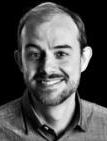
Eric Galbraith Universitat Autònoma de Barcelona, Spain
Eric Galbraith is an ICREA Research Professor, based at the Universitat Autònoma de Barcelona. He has previously worked as a research associate at Princeton University in the US, and a professor at McGill University in Canada. His research is broadly interdisciplinary, and is generally concerned with using numerical models and data analysis to better understand the interactions between climate change, human activities and the marine ecosystem. He has worked on both past and anticipated climate changes and their links with ocean biogeochemistry, as well general principles of air-sea exchange, nutrient cycling and ecosystem stoichiometry. His current research focuses on methods for including fishing activity as an integral part of marine ecosystem models, to better understand linkages with biogeochemistry and to inform future projections. He is a founding coordinator of the fisheries and marine ecosystem model intercomparison project (FishMIP).
David Allen Hutchins University of Southern California, Los Angeles, CA, USA
I am a Professor of Marine and Environmental Biology at the University of Southern California in Los Angeles. I was trained as a trace metal biogeochemist in the lab of Ken Bruland at UC Santa Cruz, did a postdoc at Stony Brook with Nick Fisher, and then worked for 10 years on the faculty of the University of Delaware in Lewes, DE before moving to USC 11 years ago. Some recent professional activities include serving as Chairman of the 1st Ocean Global Change Biology Gordon Research Conference, as lead organizer of the Evolution and Climate Change in the Ocean (ECCO) workshop, and as Associate Editor for Marine Climate Change and Ocean Acidification at the journal Proceedings B of the Royal Society. My current research interests primarily revolve around understanding the consequences of anthropogenic global change processes for ocean biology and biogeochemistry. Particular areas of emphasis include how future ocean acidification, warming, and changing ocean chemistry and physics will affect polar ecosystems, trace metal biogeochemistry (especially the iron cycle), marine nitrogen fixation, carbon and nutrient cycling, phytoplankton community structure and function, and harmful algal blooms.
Merle Sowman University of Cape Town (UCT), South Africa
Merle Sowman is an Associate Professor and Head of the Department of Environmental and Geographical Sciences at UCT. She obtained her PhD in the field of integrated coastal management from UCT in 1994, and has been involved in research, consulting and teaching in the field of environmental governance with a particular focus on integrated coastal and fisheries governance since 1996. Between 1999 and 2013, she was the Director of the Environmental Evaluation Unit at UCT, a research, training and consultancy unit that worked on a wide range of environmental and coastal projects throughout Africa. Her key areas of expertise include integrated coastal management, governance of small-scale fisheries, human dimensions of EAF, social justice and Marine Protected Area (MPA) management, and more recently exploring methods for assessing vulnerability of coastal communities to climate variability and change to inform adaptation planning.
Over the years, Merle Sowman has been involved in a diverse range of research and consulting projects, ranging from integrating sustainability principles into development planning processes in South Africa, through exploring models of governance across a range of natural resource sectors in sub-Saharan Africa to assessing socio-ecological vulnerability and developing adaptation strategies to climate change in the Benguela Current Large Marine Ecosystem region (Angola, Namibia, South Africa). She is also involved in a number of large interdisciplinary, collaborative and comparative research projects in southern Africa, South Asia (Palk Bay) and Canada (Vancouver Island) concerned with the governance of small-scale fisheries, balancing conservation and social justice imperatives in coastal protected areas, restoring rights and integrating marginalized resource users and rights holders into mainstream governance processes. She has also served on a number of international committees such as the expert consultation on Human dimensions of EAF and a review committee for Technical Guidelines on Marine Protected Areas (MPAs) for UN FAO and is currently a member of the Scientific Steering Committee of Future Earth Coast. Prof Sowman is a member of UCT’s Social Responsiveness Committee and seeks to embrace the principles and approaches of social responsiveness into her research work.
Prateep Kumar Nayak University of Waterloo, ON, Canada
Prateep Nayak is an Associate Professor in the School of Environment, Enterprise and Development at the University of Waterloo. He has an academic background in political science, environmental studies and international development, and holds a PhD in Natural Resources and Environmental Management from University of Manitoba. He engages in interdisciplinary scholarship with an active interest in combining social and ecological perspectives. Prateep’s research focuses on the understanding of complex human-environment connections (or disconnections) in coastal-marine systems with particular attention to social-ecological change, its drivers, their influence and possible ways to deal with them. His main research interests include coastal commons, environmental change and governance, social-ecological system resilience and regime shifts, environmental justice and political ecology. Prateep is currently implementing collaborative research projects that focus on small-scale fishery systems in South and South-East Asia, and China. He is also actively involved in a number of global research networks such as Too Big To Ignore (TBTI), Community Conservation Research Network (CCRN), Dried Fish Matters (DFM). Prateep is a member of the Human Dimensions Working Group of the Integrated Marine Biosphere Research (IMBeR). In the past, Prateep worked as a development professional in South Asia on issues around community-based governance of land, water and forests, focusing specifically at the interface of research, implementation and public policy. He is a past SSHRC Banting Fellow, Trudeau Scholar, a Harvard Giorgio Ruffolo Fellow in Sustainability Science and a recipient of Canada’s Governor General Academic Gold Medal.
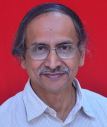
Iddya Karunasagar Nitte University, Mangalore, India
Prof. Iddya Karunasagar is Senior Director (International Relations) at Nitte University, Mangalore. He was with FAO as Senior Fisheries Industry Officer from 2007-2014 and was based at FAO Headquarters in Rome. His area in FAO was food safety and quality, particularly, providing scientific advice to the Codex Alimentarius Commission. He was involved in coordinating the Joint FAO/WHO Expert Meeting on Toxicity Equivalency Factors for Biotoxins associated with bivalve molluscs. He edited FAO Fisheries and Aquaculture Technical Paper on Assessment and management of biotoxin risks in bivalve molluscs. He has been associated with International Conference on Molluscan Shellfish Safety for about a decade as International Programme Advisor.
Iddya Karunasagar holds Ph.D. in Microbiology from Mysore University, India. He carried out postdoctoral research at University of Maryland, USA; University of Sendai, Japan; University of Wurzburg, Germany. He started his career as Assistant Professor at University of Agricultural Sciences, Bangalore, India and rose to become Director of Research of Karnataka Veterinary, Animal and Fisheries Sciences University before moving to FAO. He has published over 200 research papers including several on harmful algae, biotoxins and aquaculture, 6 patents and three commercialized technologies.
Severino G. Salmo III
Department of Environmental Science, Ateneo de Manila University, Quezon City, Philippines;
Visiting Foreign Researcher at the Tropical Biosphere Research Centre of the University of the Ryukyus, Okinawa, Japan
Sev Salmo is Assistant Professor at the Ateneo de Manila University, Philippines. He received grants from the International Foundation for Science (IFS) and National Science Foundation (NSF) through the Partnerships for Enhanced Engagement in Research (PEER) Program. He is also a recipient of the Environmental Science Award of the National Academy of Science and Technology (NAST) in the Philippines.
Dr. Salmo is a Restoration Ecologist that tracks the recovery of biodiversity and ecosystem functionality of restored mangrove stands (of different ages) and compares it with the natural mangrove stands. His work ranges from vegetation to sediment and macrofaunal biodiversity to generate parameters that serves as restoration indicators. His expertise on restoration ecology is applied on understanding the impacts of climate change (primarily sea level rise and catastrophic typhoons) on the ecological performance and post-disturbance recovery of mangroves. His works on “blue carbon” research contributes in developing adaptation/mitigation strategies against the impacts of climate change.
Rebecca Asch East Carolina University (ECU), USA
Rebecca Asch is an Assistant Professor of Fisheries Biology at East Carolina University (ECU). Dr. Asch received her Ph.D. in biological oceanography from Scripps Institution of Oceanography at the University of California San Diego. Prior to arriving at ECU, Dr. Asch was a Senior Nereus Fellow and Postdoctoral Research Associate at Princeton University’s Program in Atmospheric and Oceanic Sciences.
As a fisheries oceanographer, Dr. Asch’s research focuses on interactions between fish populations, plankton ecology, and climate change and climate variability. Her recent research primarily investigates whether climate change could lead to increased seasonal mismatches between trophic levels due to differential rates of shifts in fish and plankton phenology. Her lab at ECU examines historical and future changes in marine ecosystem phenology using long-term oceanographic time series, remote sensing, and Earth System Models. Geographically, Dr. Asch is engaged in projects focused on coastal North Carolina, southern California, the Caribbean, as well as earth system modelling projects with a global scope. In addition to her research on the phenology of fishes, Dr. Asch’s past and current work has addressed topics as diverse as the effects of bottom fishing disturbance on benthic invertebrates, the spread of invasive species, plastic ingestion by mesopelagic fishes, the influence of oceanic conditions on the spawning habitat of forage fishes, and climate change effects on spawning aggregations of reef fishes.
Katherine Mills Gulf of Maine Research Institute, Portland, ME, USA
Dr. Katherine Mills is a research scientist at the Gulf of Maine Research Institute in Portland, Maine. She earned her Ph.D. in Natural Resources at Cornell University. As a quantitative fisheries ecologist, Kathy studies (1) how physical and ecosystem conditions are changing; (2) how these changes affect fish populations, biological communities, and marine fisheries; and (3) how fisheries and fishing communities can effectively respond. Much of her work is interdisciplinary, seeking to understand and inform management of fisheries as coupled social-ecological systems. This research integrates social and economic information to link changes in the ecosystem to societal outcomes. Climate adaptation within marine fisheries has become a major recent focus, with emphases on assessing climate adaptation strategies and providing new forms of information to support adaptation planning by fishery participants, fishing communities and fishery managers.
Nicole Lovenduski University of Colorado Boulder, USA
Nikki Lovenduski is an Assistant Professor of Atmospheric and Oceanic Sciences at the University of Colorado Boulder. She and her group conduct modeling and observational studies in all aspects of modern-day ocean biogeochemistry, with a focus on the oceanic carbon cycle and its connection with the atmospheric carbon dioxide concentration. A major focus of her research is the exchange of carbon dioxide between the atmosphere and the Southern Ocean, a large oceanic region stretching from the Antarctic continent to the subtropics of the Southern Hemisphere.
Francisco Chavez Monterey Bay Aquarium Research Institute (MBARI), CA, USA
Francisco Chavez is a biological oceanographer interested in how climate variability and change regulate ocean ecosystems on local and basin scales. He was born and raised in Peru, has a BS from Humboldt State and a PhD from Duke University. He is a founding member of the Monterey Bay Aquarium Research Institute (MBARI) where he has pioneered time series research and the development of new instruments and systems to make this type of research sustainable. Chavez has authored over 200 peer-reviewed papers with 10 in Nature and Science. He is past member of the US National Science Foundation Geosciences Advisory Committee, has been involved in the development of the US Integrated Ocean Observing System (IOOS), is a member of the Governing Board of the Central and Northern California Coastal Ocean Observing System (CeNCOOS) and the Science Advisory Team for the California Ocean Protection Council. Chavez is a Fellow of the American Association for the Advancement of the Sciences; honored for distinguished research on the impact of climate variability on oceanic ecosystems and global carbon cycling. Chavez is also a Fellow of the American Geophysical Union; honored for advancing fundamental knowledge of the physical-biological coupling between Pacific Decadal Oscillations, productivity, and fisheries. He was awarded a Doctor Honoris Causa by the Universidad Pedro Ruiz Gallo in Peru in recognition of his distinguished scientific career and for contributing to elevate academic and cultural levels of university communities in particular and society in general. Chavez is the 2014 recipient of the Ed Ricketts Memorial award.
Lothar Stramma GEOMAR Helmholtz Centre for Ocean Research Kiel, Germany
Dr. Lothar Stramma is a senior scientist at the GEOMAR Helmholtz Center for Ocean Research Kiel, Germany. He received his Ph.D. in Physical Oceanography from the University Kiel, Germany in 1984. As post-doc he stayed at the Graduate School of Oceanography (GSO) at the University of Rhode Island (URI), USA applying satellite data to oceanographic research questions. In 1986 he returned to Kiel where his major work focus was on water masses, parameter distributions and currents in the Atlantic, Indian and Pacific Oceans. Stramma participated in oceanographic ship expeditions to all three world oceans. Since 2008 he is strongly involved in the Kiel Collaborative Research Centre (SFB 754) ‘Climate-Biogeochemistry interactions in the tropical ocean’ funded by the German Research Foundation. In the SFB 754 he is leading a subproject that combines hydrographic and tracer measurements in the eastern tropical Pacific in order to investigate the mean distribution, variability and trends of the water mass distributions and current systems. His present research focus is on the oxygen minimum zones, their distribution and dissolved oxygen trends based on observations and in comparison with model results as well as with biological observations.
Grace Saba Rutgers University, NJ, USA
Grace Saba is an Assistant Professor in the Department of Marine and Coastal Sciences, Center for Ocean Observing Leadership at Rutgers University. She also serves as co-coordinator for the Mid-Atlantic Coastal Acidification Network (MACAN). She received her B.S in Aquatic Biology from the University of California, Santa Barbara and her Ph.D. in Marine Science from the College of William and Mary.
Saba conducts research to understand the response of marine organisms to changes in their environment, and how those responses feed back into the ecosystem. Specifically, her research focuses on understanding how climate variability and long-term change affect individual organisms, food webs, biogeochemical cycles, and export processes. She employs an integrative, mechanistic approach and has strong laboratory and field components in her research. She also utilizes ocean observing technologies (AUVs, moorings, sensor development) to determine natural environmental variability near organism habitats that provide a framework to better study organism response and design more realistic experiments. She works as local as the shelf waters of the Mid-Atlantic Bight to remote regions in Antarctica. Her Antarctic research examines the role large scale forcing and physical factors play in structuring food webs as well as the impacts of environmental stressors on Antarctic krill physiology.
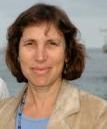
Lisa Levin Center for Marine Biodiversity and Conservation, Scripps Institution of Oceanography, UC San Diego, USA
Dr. Lisa Levin is a sea-going biological oceanography and Distinguished Professor at the Scripps Institution of Oceanography, University of California San Diego. She has PhD from Scripps Institution of Oceanography, served on the faculty of North Carolina State University for 9 years and has been on the faculty at Scripps since 1992. Her research addresses the ecology of animal communities at the sea floor, including deep continental margins and coastal wetlands. She currently studies the environmental drivers shaping oxygen minimum zone and methane seep ecosystems, and the larger consequences of climate change (including deoxygenation) and human industrialization for the deep sea. This work has taken her to deep waters of the Pacific, Indian and Atlantic Oceans on over 40 research cruises, many employing submersibles, ROVs, and AUVs. Dr. Levin has published over 245 peer-reviewed papers. She is founder and co-lead of the Deep-Ocean Stewardship Initiative, an international, multidisciplinary network of experts providing guidance on environmental management and sustainability of the deep ocean. She is also co-lead of the Deep-Ocean Observing Strategy, a GOOS program linking scientific observation to societal needs. From 2011-2017 Dr. Levin served as Director for the Center for Marine Biodiversity and Conservation at Scripps from 2011-2017. Dr. Levin has edited for the journals Limnology and Oceanography, MEPS, Ann. Rev. Marine Science, Marine Ecology and Science Advances, has served on numerous steering and advisory committees (e.g., Census of Marine Life, BOEM, OCB, SCOR) and is currently a member of the Global Ocean Oxygen Network (IOC-UNESCO). She is a Fellow of the American Geophysical Union, a Fellow of the AAAS, recipient of the 2011 IOC Anton Bruun Medal, and 2018 recipient of the ASLO A.C. Redfield Lifetime Achievement Award.
Murray Roberts School of GeoSciences, University of Edinburgh, UK
Murray Roberts is Professor of Marine Biology at the University of Edinburgh’s School of GeoSciences. He leads the Changing Oceans research group and co-ordinates the European ATLAS project, a 4-year, €9.3M European project to create a Trans-Atlantic assessment and deep-water ecosystem-based spatial management plan for Europe.
His previous roles include Reader and then Professor of Marine Biology and Director of the Centre for Marine Biodiversity & Biotechnology at Heriot-Watt University in Edinburgh (2009-16) where he co-ordinated the development of the Lyell Centre (2012-15). Before working in Edinburgh Murray was based at the Scottish Association for Marine Science (1997-2009) with a period as Marie Curie Fellow at the Center for Marine Science, University North Carolina Wilmington in the USA (2007-09).
Murray studied Biology at the University of York before completing a PhD at the University of Glasgow examining nitrogen cycling in the Anemonia viridis symbiosis. Since 1997 his work on cold-water corals and deep-sea biology has taken him to sites off the UK, Norway, Ireland and the SE United States. Murray is senior author of the ‘Cold-water Corals’, the first book covering the biology and geology of these important deep-sea habitats, a contributing author to the Intergovernmental Panel on Climate Change (IPCC) 5th Assessment Report and co-lead editor of a 2014 United Nations Convention on Biological Diversity report on ocean acidification. He is a Fellow of the Royal Society of Biology and holds an honorary position at the University of North Carolina Wilmington, USA. He has led or participated in 23 offshore research cruises.
Murray’s wider roles include: Contributing Author for the Intergovernmental Panel on Climate Change (IPCC) 5th Assessment Report Chapter 6 ‘Ocean Systems’; Member of the Convention on Biological Diversity’s Expert Group on ocean acidification; Member of the Expert Panel United Nations Regular Process for Global Reporting and Assessment of the State of the Marine Environment, including Socio-economic Aspects; Member of the Pool of Experts of the Regular Process United Nations World Ocean Assessment; Member of the ICES Advice Drafting Group on Ecologically & Biologically Significant Areas (NE Atlantic); Founding member of the ICES Working Group on Deep-water Ecology; Member of the Clyde Scientific Trust (Scotland); Editorial Board Member for Nature Scientific Reports.
Veronique Camille Garcon LEGOS Laboratoire d'Etudes en Géophysique et Océanographie Spatiales, CNRS, Toulouse, France
Dr. Véronique Camille Garcon is currently ex-officio in the Scientific Committee of the SOLAS (Surface Ocean Lower Atmosphere Study) project (SCOR, ICACGP, WCRP, Future Earth). She graduated from University of Paris VII in Environmental Sciences and then became a post-doc fellow at MIT (Cambridge, USA). Recruited as an Early Career scientist at Centre National de la Recherche Scientifique (CNRS) in 1985, she worked at ‘Institut de Physique du Globe de Paris’ then moved down to Toulouse with a sabbatical stay at Princeton University in 1995 -1996. Her research themes aim towards understanding and quantifying processes governing fluxes of carbon, oxygen and associated biogeochemical elements in the ocean, using in situ tracers observations, remotely sensed data, coupled physical biogeochemical modeling and data assimilation technics. She is also deeply involved in oceanic biogeochemical climatic monitoring via electrochemical sensors development. She served in the JGOFS SSC, member of the French IFREMER Scientific Committee for 10 years, and in many national (CNRS, National Navy,..), European (ESF, EC, EGU, ERC..) and international scientific instances. She is a member of the Global Ocean Oxygen Network from IOC-UNESCO, of the IOCCP SSG and of the CLIVAR EBUS Research Focus group. She received the Anton Bruun medal in June 2017 delivered by IOC-UNESCO.
Hassan Moustahfid Food and Agriculture Organization of the United Nations (FAO)
Dr. Hassan Moustahfid is a Senior Fishery Resources Officer at the Food and Agriculture Organization of the United Nations (FAO) based in Rome, Italy. He has an academic background in Fisheries Oceanography and his research interests today includes the implications of changing western boundary currents (e.g. Gulf Stream) on fisheries resources and exploring the usefulness of predictive and forecasting models and products to inform sustainable fisheries management. Dr. Moustahfid is well-known to the Ocean Observing Systems and Fisheries community. Prior to joining United Nations FAO, he has served as a Scientist and Project Manager at the United States National Oceanic and Atmospheric Administration (NOAA), Integrated Ocean Observing System Program (or US IOOS). He led the implementation of projects and programs to improve ecosystem observations to support sustainable fisheries, and the development of the first US Telemetry Network designed to provide the scientific basis for marine fisheries and protected-endangered species management, evaluate the potential effects of anthropogenic disturbances and improve ocean forecast models. His recent contribution to climate science includes a co-authored chapter for the 4th United States National Climate Assessment and the development of the concept of the Blue Belt Initiative (BBI) in West Africa to boost Coastal Resilience to Climate Change that was launched at the 22nd Conference of the Parties of the United Nations Framework Convention on Climate Change (UNFCCC COP22), held in Marrakech in November 2016. He is a past Fulbright Senior Scholar and a recipient of the several award including the recent award from the Bureau of Oceans and International Environmental and Scientific Affairs at the US Department of State for his contribution to the 1st United Nations World Ocean Assessment.
Laura Lorenzoni Ocean Biology and Biogeochemistry Program (OBB), NASA Headquarters Science Mission Directorate
Laura Lorenzoni is a Program Scientist for the Ocean Biology and Biogeochemistry Program (OBB) in the NASA Headquarters Science Mission Directorate. She is an IPA detailee from the University of South Florida, College of Marine Science (St. Petersburg, FL). The OBB program focuses on describing, understanding, and predicting biological and biogeochemical conditions, interactions and changes in the upper ocean, as determined by observation of aquatic optical properties using remote sensing and in situ data.
Laura completed her undergraduate in Biology at the Universidad Simon Bolivar (Venezuela), and subsequently earned both her Master’s and PhD degrees in Marine Science at the University of South Florida. Her research interests include land-ocean interactions, and the influence of rivers on transport and distribution of dissolved and particulate organic matter in the coastal ocean. For over a decade, she worked with the CARIACO Ocean Time-Series project, and has been an advocate of time-series (in situ ship-based and autonomous, as well as satellite remote sensing) as tools to understand natural and anthropogenic changes in the ocean.
Jorge García Molinos Arctic Research Center, University of Hokkaido, Sapporo, Japan
Dr. Jorge García Molinos is an assistant professor at the Arctic Research Center, University of Hokkaido (Sapporo, Japan). He holds a doctorate in Aquatic Ecology from Trinity College Dublin. Prior to his current position, he was a Postdoctoral Research Associate at Trinity College, the Scottish Association for Marine Science, and the National Institute for Environmental Studies in Japan.
Dr. García Molinos’ research investigates the links and mechanisms by which human activities are modifying patterns of biodiversity, from local to global scales. He uses multidisciplinary approaches combining aspects from experimental ecology, macroecology, physiology, trait-based ecology, climatology, network analysis, and modelling. His current work primarily focuses on the study of range shifts dynamics in marine biota in relation with climate change, and their cascading implications from community shifts to effects on ecosystem services. He also works actively on issues related to disturbance ecology and the effects of multiple stressors on freshwater systems; mostly in relation to land use change and its interaction with climate change.
For more information see
http://garciamj.wixsite.com/jorgegarciamolinos
Malin Pinsky Rutgers University, NJ, USA
Malin Pinsky is an Assistant Professor in the Department of Ecology, Evolution, and Natural Resources and an Alfred P. Sloan Fellow in Ocean Sciences at Rutgers University. Pinsky’s research examines the ecological and evolutionary processes underlying global change in the ocean, including conservation and management approaches to adapt to the impacts of climate change. He developed and maintains the OceanAdapt website to document shifting ocean animals in North America, a resource used by governments and NGOs for climate adaptation planning. He has published articles in Science, Proceedings of the National Academy of Sciences, Current Biology, and other international journals, and his research has received coverage by the New York Times, Wall Street Journal, BBC, and others. He is a recipient of early career awards and fellowships from the National Academy of Sciences, American Society of Naturalists, and the International Council for the Exploration of the Sea. Previously, he was a David H. Smith Conservation Research Fellow at Princeton University. He has a Ph.D. from Stanford University, an A.B. from Williams College, and childhood roots along the coast of Maine.
Ulrich Sommer GEOMAR Helmholtz Centre for Ocean Research Kiel, Germany
Ulrich Sommer is retired Full Professor of Oceanography at the GEOMAR and the Christian-Albrechts- University at Kiel. He is an experimentally oriented community ecologist using mainly plankton as model system to test ecological theory. He received his PHD 1997 from the University of Vienna, Austria. After a short PostDoc period at Vienna, he became Assistant Professor of Limnology at the University of Constance, Germany (1979-1985). From 1985 to 1991 he was Senior Scientist at the Max-Planck-Institute of Limnology at Plön, Germany. In 1991 he became Full Professor of Microbiology of Geological Processes at the Carl-von-Ossietzky University of Oldenburg, Germany. Since 1994 he has been Full Professor at the GEOMAR (formerly IFM) at Kiel. His research interests are the seasonal succession of plankton, competition, food web relationships, the role of body size in community interactions and the role of biodiversity in ecosystem functioning. From 2005 to 2012 he coordinated the German priority program AQUASHIFT on the response of aquatic ecosystems to climate change.
Kirstin Holsman NOAA Alaska Fisheries Research Center, Seattle, USA
Dr. Kirstin Holsman is a Fishery Research Biologist with the US National Oceanic and Atmospheric Administration Alaska Fisheries Research Center in Seattle. Her research is focused on the development of quantitative methods for ecosystem-based fisheries management and methods to assess and manage for climate change impacts on Arctic fish and fishing communities. This includes multiple collaborations to develop and implement climate-specific stock assessment models for Alaskan (USA) fish species, Integrated Ecosystem Assessments, bioenergetics and food-web models, and field studies of climate and fishery effects on marine ecosystems. She is co-lead investigator on the Alaska Climate Integrated Modeling Project (ACLIM), a multidisciplinary collaboration to project climate change impacts on Bering Sea fish and fishing communities, and evaluate the performance of alterative management strategies under future climate scenarios. She is a member of the international ICES/PICES Strategic Initiative on Climate Change Impacts on Marine Ecosystems (SICCME), Bering Sea lead of the NOAA Integrate Ecosystem Assessment program, and coordinator for the Bering Sea Fisheries Ecosystem Plan Climate Action module and is an active member of multiple national and international writing teams focused on understanding climate change impacts on marine ecosystems.
Sarah Cooley Ocean Acidification Progam, Ocean Conservancy, Washington DC, USA
Sarah Cooley is the Director of the Ocean Acidification Progam at Ocean Conservancy, in Washington DC. Formerly, she was a researcher and postdoctoral investigator at Woods Hole Oceanographic Institution (WHOI), as well as the ocean acidification scientist in the Ocean Carbon and Biogeochemistry Program Project Office. Sarah received her Ph.D. from the University of Georgia.
Sarah’s guiding interests include ocean carbon cycling, science communication, and incorporating accurate ocean science knowledge into policy. In her position at Ocean Conservancy, Sarah works to educate and engage decision-makers and stakeholders from every political perspective at regional to international levels on ocean acidification, identifying ways that different groups can take concrete, stepwise action on the issue. In her work, Sarah combines science synthesis, strategic communications, political strategy and advocacy, and public advocacy.
Beth Fulton CSIRO Oceans and Atmosphere
Dr. Beth Fulton is a Principal Research Scientist with CSIRO Oceans and Atmosphere where she leads the Marine Ecosystem Modelling and Risk Assessment Group. Beth is also an Adjunct Professor at the Centre of Marine Socioecology, a collaboration between University of Tasmania, CSIRO and the Australian Antarctic Division. Beth has been with the CSIRO for more than 15 years, where she has developed various system modelling tools for looking at marine ecosystems and sustainability. The best known tool is the Atlantis modelling framework, which has been applied in more than 30 marine ecosystems around the world. The models developed by Beth's team are some of the first to give equal attention to biophysical and human components of marine and coastal ecosystems. They underpin CSIRO's research into sustainably managing potentially competing uses of marine environments and adaptation to global change and have been used to consider effective means of conserving and monitoring marine and coastal ecosystems.
Frances A. Ulmer US Arctic Research Commission (USARC), USA
Frances A. Ulmer is the Chair of the US Arctic Research Commission (USARC), appointed by President Obama in 2011. From 2007 to 2011, Ms. Ulmer served as Chancellor of the University of Alaska Anchorage(UAA), Alaska’s largest public university. Previously, she was a Distinguished Visiting Professor of Public Policy and Director of the Institute of Social and Economic Research at UAA. Ms. Ulmer served as an elected official for 18 years as the mayor of Juneau, a state representative and as Lieutenant Governor of Alaska. She has served on numerous state and federal boards including the National Commission on the BP Deepwater Horizon Oil Spill and Offshore Drilling in 2010, over 10 years on the North Pacific Anadromous Fish Commission, the first Chair of the Alaska Coastal Policy Council, and co chair of the Aspen Institute' s Commission on Arctic Climate Change. Ms. Ulmer has been a fellow at Harvard’s Kennedy School, and is the 2018 Cox Visiting Professor at Stanford.
Xuelei Zhang First Institute of Oceanography (FIO), State Oceanic Administration, China
Dr. Xuelei Zhang, holds Research Professor at the First Institute of Oceanography (FIO), State Oceanic Administration, China. He graduated at the School of Marine Life of the Ocean University of Qingdao in 1995, received his master degree of marine biology at FIO in 1998 and Ph.D at the Ocean University of China in 2003. Being a researcher at FIO since 1998, he is current Deputy Director of the Marine Ecology Research Center-FIO and member of the Qingdao National Laboratory for Marine Science and Technology.
Dr. Zhang has been devoted in studies of marine biology and ecology and the interdisciplinary studies. He contributed to the development of molluscan ecophysiology and eco-modelling and rehabilitation ecology of seagrass bed, exclusively studied the coastal ecosystems of China and typical processes including the decadal trend of variation of the Yellow Sea ecosystem. Dr. Zhang is Chief Scientist of the Green Tide Project of the National Key R&D Program. He is also actively introducing the 3S technologies into marine ecological studies and promoting international and regional cooperation of on this topic.
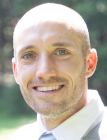
Tuesday, June 5
Stephen Posner
COMPASS
Stephen Posner is Assistant Director of Policy Engagement with COMPASS. He has over 12 years of experience cultivating dynamic relationships between scientists, decision-makers, and journalists. He spans boundaries between science and policy to enhance the relevance of research to address societal challenges, foster the capacity to use scientific evidence and perspectives in decision-making, and develop new opportunities for science to inform and transform policy. Stephen is also an affiliate with the Gund Institute for Environment at the University of Vermont and has published research in Proceedings of the National Academy of Sciences, Nature Communications, Environmental Science and Policy, Ecological Economics, and Sustainability Science. His research interests include how science and policy interact, environmental economics and policy, and the value of the benefits that people receive from nature. Previously, he worked as a consultant to provide economic analyses of natural resources for global companies. He has a Ph.D. in natural resources and ecological economics from the University of Vermont, a B.S. in astronomy and physics from Haverford College, and studied science education at Stanford University.
Thursday, June 7
Hans-O. Pörtner
Alfred Wegener Institute for Marine and Polar Research, Bremerhaven, Germany
Hans-O. Pörtner studied at Münster and Düsseldorf Universities where he received his PhD and habilitated in Animal Physiology. As a Research and then Heisenberg Fellow of the German Research Council he worked at Dalhousie and Acadia Universities, Nova Scotia, Canada and at the Lovelace Medical Foundation, Albuquerque, NM. Currently he is Professor and Head of the Department of Integrative Ecophysiology at the Alfred Wegener Institute for Marine and Polar Research, Bremerhaven, Germany. He acts as an associate editor “Physiology” for Marine Biology and as a co-editor of the Journal of Thermal Biology. He was Honorary International Associate Member of the Society for Integrative Biology, USA, between 2006 and 2013. Until 2005 he served as Lead Author on the Special Report “Carbon Capture and Storage” of IPCC (Intergovernmental Panel on Climate Change, AR4). Until 2014 he served as a Coordinating Lead Author of IPCC WGII AR5, chapter 6, Ocean Systems and as a member of the author teams for the WGII Summary for Policymakers and Technical Summary, as well as a member of the Core Writing Team for the IPCC AR5 Synthesis Report. In October 2015 he was elected Co-Chair of Working Group II of the IPCC. His research interests include the effects of climate warming, ocean acidification, and hypoxia on marine animals and ecosystems with a focus on the links between ecological, physiological, biochemical and molecular mechanisms limiting tolerance and shaping biogeography and ecosystem functioning.
Hazel Oxenford Centre for Resource Management and Environmental Studies (CERMES), University of the West Indies (UWI), Centre for Resource Management and Environmental Studies (CERMES), Barbados
Hazel Oxenford, Professor of Marine Ecology and Fisheries, has been on staff at the Centre for Resource Management and Environmental Studies (CERMES), University of the West Indies (UWI), Cave Hill Campus since 1991, serving as lecturer, senior lecturer and director over the years. A graduate of Exeter University, UK, she came to Barbados in 1980 and joined UWI as a student, obtaining a PhD in fisheries science in 1985 for her outstanding work on ‘The biology of dolphinfish and its implications for fisheries management in the eastern Caribbean’. Her research interests today are primarily in applied fisheries biology and management of pelagic and reef associated species in Caribbean SIDS, and on the impacts of anthropogenic stressors on coral reefs.
She has extensive teaching and research experience with over 150 publications in the scientific and technical literature. She has served on numerous national and international Technical Advisory Committees and Working Groups.
She is well known by fishers and fishing industry stakeholders throughout the Caribbean Community, especially for her extensive work on flyingfish which was used by the International Court in adjudication of a maritime boundary dispute. She has supervised numerous graduate students in all areas of marine biology, fisheries, coral ecology and environmental science. More recently she has been working with colleagues on the economic value of coral reef fish resources and their policy implications; on making the most of data poor fisheries to improve management decisions; the vulnerability of coral communities to rising sea surface temperature; the impacts of climate-related sargassum influxes to the Caribbean; and piloting tangible solutions for rehabilitation of coastal fringing reefs in Barbados.
Publication profile: http://scholar.google.com/citations?user=g_mA698AAAAJ&hl=en
Matthew Long Climate and Global Dynamics Laboratory, National Center for Atmospheric Research, Boulder, Colorado, USA
Matthew Long is a Scientist in the Oceanography Section within the Climate and Global Dynamics Laboratory of the National Center for Atmospheric Research. His research interests include the ocean carbon cycle, variations in dissolved oxygen, and the interaction of marine ecosystems with climate variability and change. He works on the development and application of the Community Earth System Model. He serves on the scientific steering committee for the US Ocean Carbon and Biogeochemistry program.
Ling Cao Center on Food Security and the Environment, Stanford, CA, USA
Ling Cao completed her Ph.D. in Natural Resources and Environment at the University of Michigan, Ann Arbor. Trained as an agronomist and environmental scientist, she has focused on interdisciplinary research at the interface between the sustainability of food and natural systems. Her dissertation research quantitatively assessed the sustainability of emerging shrimp farming systems and technologies, and in particular focused on applying these results to producers and consumers in China and US. Currently, she is mainly working on issues related to aquaculture, fisheries, and food security in China.
Edward Allison College of Environment, University of Washington, USA
Eddie Allison's research centers on the human connection to natural resources. His primary areas of focus are 1) the contribution of fisheries and aquaculture to food and nutrition security and coastal livelihoods, 2) governance of small-scale fisheries and aquaculture production and the human rights of fisherfolk, and 3) the vulnerability and adaptation to climate change of people dependent on marine and freshwater resources. His work spans the globe, holding past positions in the field of fisheries and aquaculture management and development in sub-Saharan Africa, Asia, Oceania, Latin America and Europe, as researcher or technical and policy advisor for various international organizations. He has held faculty appointments at the University of East Anglia, and was the director of Policy, Economics, and Social Science at the WorldFish Center in Malaysia prior to coming to the School of Marine and Environmental Affairs.
More...
Mohammad Mahmudul Islam Sylhet Agricultural University, Bangladesh
Mohammad Mahmudul Islam is an assistant professor at the Department of Coastal and Marine Fisheries, Sylhet Agricultural University in Bangladesh. He received his PhD from the University of Bremen in Germany. His PhD research contextualized poverty and vulnerability in the livelihoods of coastal fishing communities in Bangladesh. His research experience spans different aspects of small-scale fisheries in Bangladesh that includes sanctuary governance, coastal and marine conservation policy, mangrove-based fisheries and associated livelihoods, climate change impacts, livelihoods and well-being analysis of small-scale fishers. His current research focuses on the implementation of Small-scale Fisheries Guidelines in Bangladesh context.
Jake Rice Emeritus, Fisheries and Oceans Canada (DFO)
Dr. Jake Rice retired in 2015 after 9 years as Chief Scientist for the Department of Fisheries and Oceans, Canada, and now holds an Emeritus position with DFO.. He previously served as Director of Peer Review and Science Advice (1996-2006) and held senior DFO Science positions in Pacific (1990-1996) and Newfoundland Regions (1982-1990), He held many roles for ICES and PICES, including Chair of the ICES Consultative Committee, and was awarded the second ICES Lifetime Achievement Award. He was a Lead Author for the n Drivers, Trends and Mitigation chapter for IPCC 5th Assessment Report, and is an LA for Chapter 1 of the IPCC Special Report on the Oceans and Cryosphere. He recently co-chaired the Regional Assessment for the Americas of the Intergovernmental Panel on Biodiversity and Ecosystem Services, is Coordinating LA of the Oceans and Coasts Chapter of the Global Environment Outlook for UNEP, and is Co-Head for the Peer Review College of the Marine Stewardship Council. He was a member of the Group of Experts for the UN Regular Process for Global Marine Assessments. His current research areas include effects of ecosystem drivers on fisheries dynamics and the effects of fisheries on ecosystem structure and function, methods for the integration of the bio-ecological, socio-cultural and economic dimensions in natural resource management, and the science-policy interface in decision-making. He has more than 300 publications in the scientific and technical literature, primarily on the ecosystem approach to integrated marine resource management and the science-policy interface in natural resource management and conservation.
Kenneth A. Rose Horn Point Laboratory, University of Maryland, Center of Environmental Science, USA
Dr. Rose’s research centers on using mathematical and computer simulation modeling to predict and better understand fish population and food web dynamics in estuaries, lakes, reservoirs, and oceans. Dr. Rose is presently the France-Merrick Chair in Sustained Ecosystem Restoration at Horn Point Laboratory. Prior to that, he was as a Professor in the Department of Oceanography and Coastal Sciences, and Associate Dean in the College of the Coast and Environment, at Louisiana State University. He started his career as a consultant in Washington, D.C. and then as a research staff member at Oak Ridge National Laboratory. Dr. Rose has served on multiple editorial boards, and was recently awarded the Award of Excellence (for lifetime achievement) from the American Fisheries Society. He has been a member of multiple steering and advisory committees providing scientific guidance and oversight, including several National Academy of Sciences’ committees, the US GLOBEC program, and the US Army Corps of Engineers. Dr. Rose has been involved with a wide range of fisheries management issues and contentious environmental issues that often involve fish; these highlight the sometimes tricky arena for scientists where science meets policy and decision-making. He received his BS degree in biology and mathematics from the University at Albany, and his graduate degrees in fisheries from the University of Washington.
Kate R. Searle NERC Centre for Ecology and Hydrology, Edinburgh, UK
For two decades my research has focused on the effects of environmental change on wildlife behaviour, population dynamics and distributions. By combining contemporary ecological techniques with an understanding of resource-consumer dynamics in heterogeneous environments, I aim to gain mechanistic, process-driven understanding of ecological systems through both advanced statistical modelling and applied, management-orientated experiments. I am particularly interested in understanding how individual behaviour of wildlife scales up to affect population and ecosystem level consequences in rapidly changing, complex environments. For the last five years, I have worked on the Isle of May long-term study of seabird ecology in the north-eastern UK. Here, my research aims to understand how different aspects of environmental change affect population processes in breeding seabirds.
For more information
https://www.ceh.ac.uk/staff/kate-searle
Richard B. Sherley Environment and Sustainability Institute, University of Exeter and Bristol Zoological Society, UK
Dr. Richard Sherley is a Research Fellow at the University of Exeter and the Bristol Zoological Society in the UK. He previously held a research post at the University of Cape Town (where he remains a Research Associate) and has more than 10 years of experience working in the Benguela Ecosystem in southern Africa. His research aims to understand the impacts of anthropogenic and environmental change on marine ecosystems by studying the foraging ecology and population biology of seabirds. Richard is particularly interested in the drivers of dispersal behaviour and survival of non-breeding individuals as these issues have received little attention in marine predators, even though they may play vital roles in buffering populations against collapse. More broadly, his interests include how the conditions that animals experience during their early development influence later fitness, how to consider life-history strategies in conservation planning and how technology can assist our efforts to understand changes in animal populations by creating minimally-invasive solutions to gather ecological data.
Patricia Miloslavich University of Tasmania, Hobart, Australia
Patricia Miloslavich is the International Project Officer of the Global Ocean Observing System (GOOS) Biology and Ecosystems Panel based at the Institute for Marine and Antarctic Studies of the University of Tasmania and a senior professor at the Department of Environmental Studies of Simon Bolivar University in Venezuela. Patricia is coordinating activities to implement global sustained observations of marine biodiversity and ecosystems focused on specific conservation and management problems to effectively mitigate or manage changes resulting from anthropogenic pressures. She studied marine biology at Simon Bolivar University and received her Ph.D. in Oceanography from the University of Quebec at Rimouski. With more than 25 years of academic experience, she has led research projects and authored peer review publications focused on national (Venezuelan), regional (Caribbean and South America) and global topics in marine biology and biodiversity. Formerly, as senior scientist of the Census of Marine Life program, she led the global synthesis of the state of knowledge of marine biodiversity worldwide, and later established the South American Research Group in Coastal Ecosystems. Patricia has also contributed to policy through the Ocean Observations and Ocean Sciences Sections of IOC/UNESCO and to public outreach through several media including National Geographic and served as Communicator at Sea for the E/V Nautilus exploration program.
She is a member of the Executive Committee of the Science Council for Oceanic Research (SCOR), a member of the Planning Committee for the Marine Biodiversity Observation Network of the Group of Earth Observations (GEO/MBON), a Coordinating Leading Author for the IPBES global assessment, a member of the “Pool of Experts” for the UN World Ocean Assessment, and a member of the Science Advisory Task Team for the Ocean Biogeographic Information System (OBIS). The impact and scientific relevance of her scientific publications and her communication efforts to broader audiences, led to her receiving the Eugenio Mendoza Award in 2015, the highest Venezuelan achievement in any scientific discipline.
Douglas Wallace Dalhousie University and Ocean Frontier Institute
Doug Wallace is a Professor at the Department of Oceanography at Dalhousie University, Canada where he holds the Canada Excellence Research Chair in Ocean Science and Technology. He gained his BSc at the University of East Anglia and his PhD in Chemical Oceanography from Dalhousie University and worked previously at Brookhaven National Laboratory in the USA and the Helmholtz Centre for Ocean Research Kiel (GEOMAR) in Germany. His research topics are chemical oceanography, atmospheric-ocean interaction and the oceanic cycling of carbon and nitrogen. He is currently Scientific Director of the Marine Environmental Observation, Prediction and Response Network: a national Network of Centres of Excellence which supports research on marine environmental risk across Canada. He leads a trans-national research module of the Ocean Frontier Institute which is focussed on “auditing” the carbon sink in the Northwest Atlantic Ocean. More information: www.dal.ca/diff/cerc.html
Mohamed AbdelKarim Aly Abdrabo University of Liverpool, UK
Mohamed Abdel-Karim Aly Abdrabo is professor of environmental economics at the Institute of Graduate Studies and Research of the University of Alexandria. Mohamed is the executive director of an International Development Research Centre (IDRC) sponsored project for the establishment of the Alexandria Research Center for Adaptation to Climate Change (ARCA) at the University of Alexandria. He was a lead author and member of the Summary for Policy Makers core team for the upcoming Inter-Governmental Panel on Climate Change (IPCC) Fifth Assessment Report. Mohamed worked as advisor to the Center for Environment and Development for the Arab Region and Europe and as a consultant to a number of environment-related research projects in a number of countries in the region. His research work is in the fields of environmental and urban socioeconomic assessments, economics of the environment and vulnerability and adaptation to impacts of climate change. Mohamed received a Ph.D. at the University of Liverpool, UK.

Eric Galbraith Universitat Autònoma de Barcelona, Spain
Eric Galbraith is an ICREA Research Professor, based at the Universitat Autònoma de Barcelona. He has previously worked as a research associate at Princeton University in the US, and a professor at McGill University in Canada. His research is broadly interdisciplinary, and is generally concerned with using numerical models and data analysis to better understand the interactions between climate change, human activities and the marine ecosystem. He has worked on both past and anticipated climate changes and their links with ocean biogeochemistry, as well general principles of air-sea exchange, nutrient cycling and ecosystem stoichiometry. His current research focuses on methods for including fishing activity as an integral part of marine ecosystem models, to better understand linkages with biogeochemistry and to inform future projections. He is a founding coordinator of the fisheries and marine ecosystem model intercomparison project (FishMIP).
John Pinnegar Centre for Environment, Fisheries & Aquaculture Science, UK
Principle Scientist and lead advisor on climate change at Cefas the UK government fisheries laboratory in Lowestoft. John is director of the Collaborative Centre for Sustainable Use of the Seas (CCSUS) a joint initiative between Cefas and the University of East Anglia, he is a co-chair of the ICES/PICES Strategic Initiative on Climate Change Impacts on Marine Ecosystems (SICCME) and he will be a Lead Author for the 6th Assessment Report of the IPCC in 2021. Dr Pinnegar’s research interests include long-term historic changes in marine ecosystems, the impacts of future climate change and ocean acidification on marine animal populations, as well as marine food-webs and fisheries modelling. He has a particular interest in the development of socio-political scenarios for the oceans as well as public understanding of maritime climate change issues. John has worked all around the World including, most recently in a number of Caribbean and Indian Ocean Small Island Developing States (SIDS). He plays a leading role in the EU Horizon 2020 Project ‘CERES’ (Climate change & European aquatic RESources).
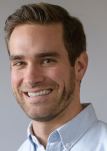
Scott Large NOAA Fisheries, Northwest Fisheries Science Center, USA
Scott Large is Chief of the Ecosystem Dynamics and Assessment Branch at the US National Oceanic and Atmospheric Administration Northeast Fisheries Science Center, which provides guidance and tools to facilitate Ecosystem-based Fisheries Management (EBFM) for the Northeastern United States. Before moving to NOAA, he was a Professional Officer at the International Council for the Exploration of the Sea (ICES) in Copenhagen, Denmark. At ICES, he worked as a project manager for the Advisory Department and sought to make consistent, transparent, and automated products to support ecosystem advice and advice for fishing opportunities. Scott is broadly interested in understanding the dynamics between human activities and ecosystem structure and function. One of his favorite areas of research is delineating ecosystem thresholds and he has explored empirical methods to identify the level of fishing (or other human activities) and the environment that results in threshold responses in ecosystem state. These tipping-points are important for ecosystem-based management because they can be used to inform reference points or decision criteria for management action.
- Early Registration Fee
- Abstract submission
- CV and Financial support application
